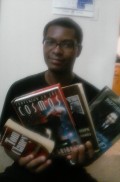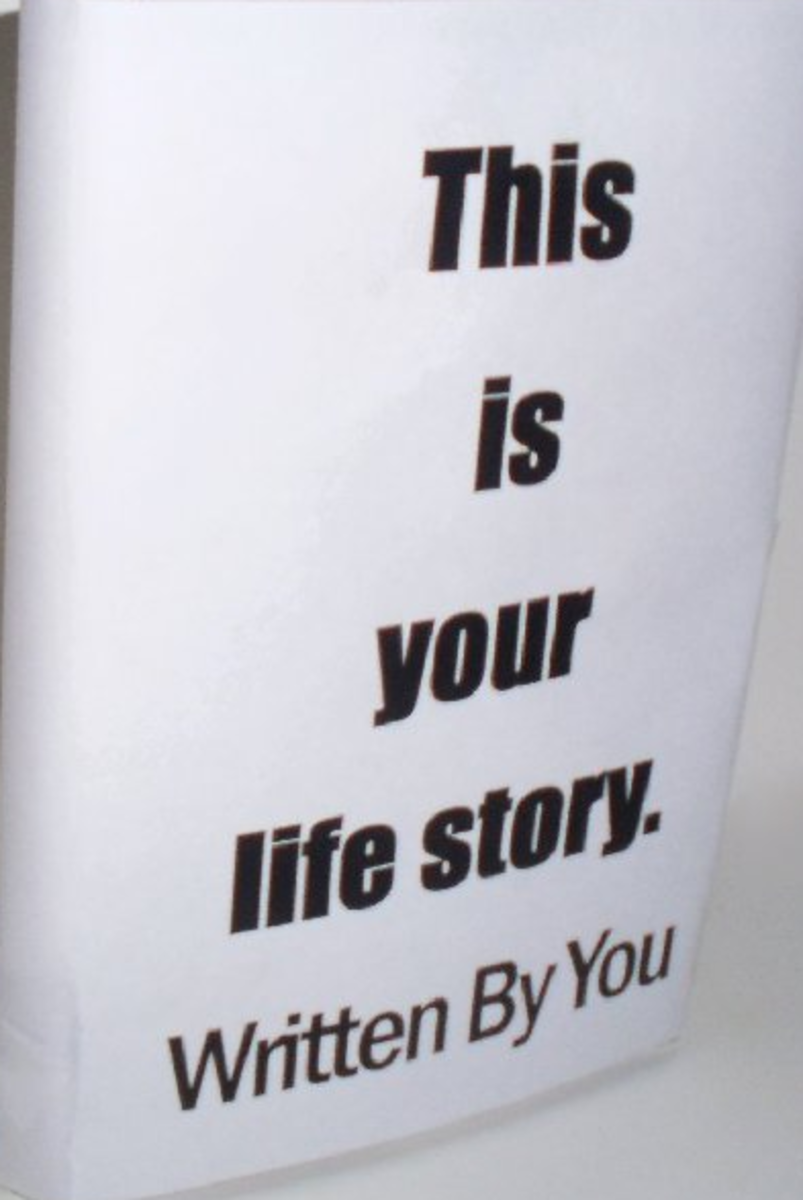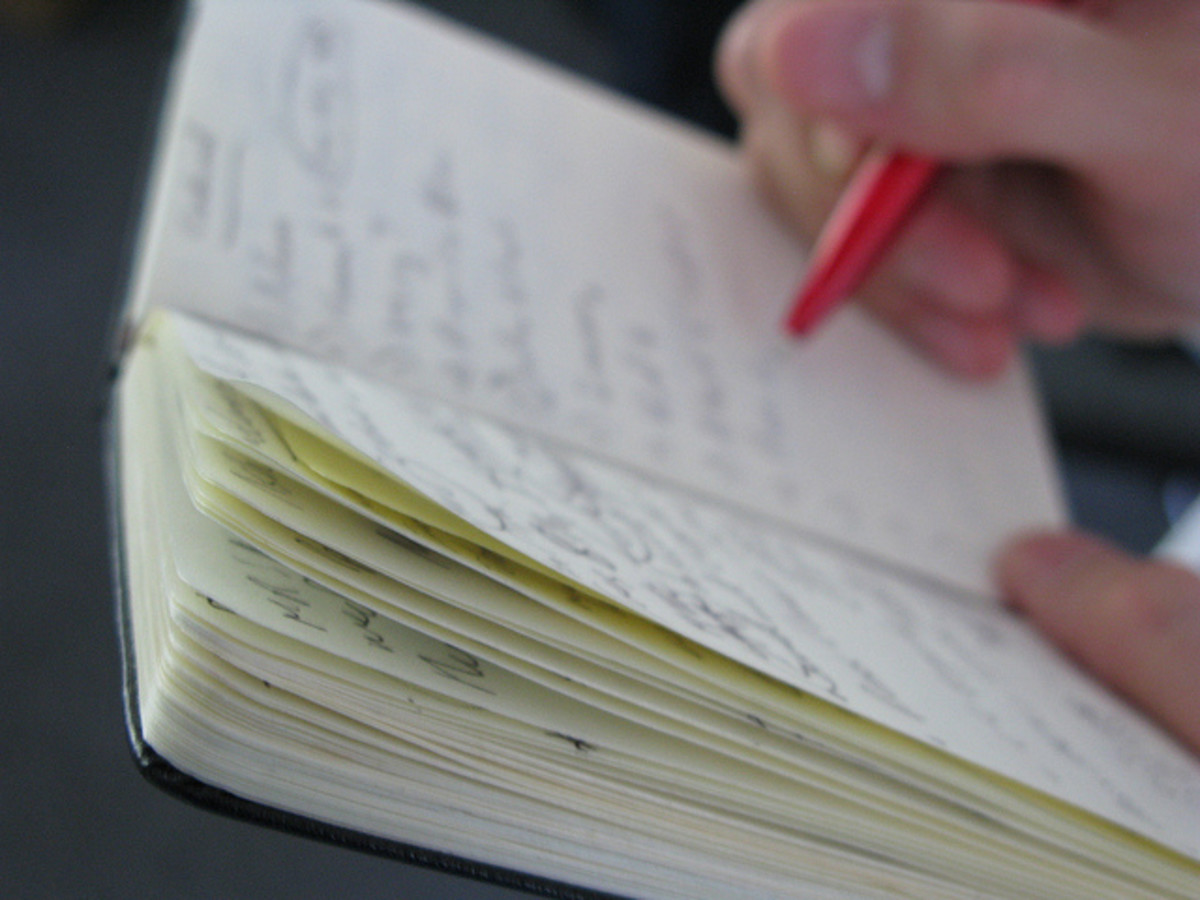How to Write Your First Novel
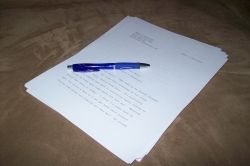
Where Do I Find Ideas for My Stories?
Here are some great places to find starting points for your Short Story, Novella or Novel. These should only be sparks to lead you to a unique story idea. Please don't plagiarize or recount something as it was described in the articles listed. Be Creative. That is what writing is all about.
- Your Past - You can find some real jewels from things that you have personally experienced. What subject is better than something you know a lot about first hand.
- Weekly World News - This Magazine has some of the craziest stories in it. There should be a little nugget that is fascinating to write about in this week's issue.
- Yahoo News- I like the Odd News, but there are awesome ideas all over this page.
- TV - I get a lot of ideas from programs that I watch. I think about alternative plot lines. How would I handle that scene? I wouldn't write it that way, I would write it this way... That sort of thing.
- Pick a Word - I will sometime pick a word from a book I am reading and write the first thing that comes to my mind. Sometimes I get a great story. Other times I just get 500 words of practice.
- People Watch - Take a notebook to the park or the mall or some other public place. Choose a person at random and write their back story based on your first impression.
If you have other ideas on how to find story ideas, write a comment. I would love to hear how you are inspired.
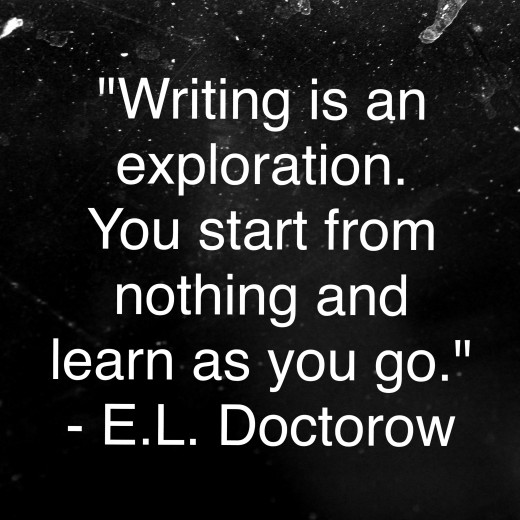
How to Choose a Character's Name
Have you ever been stumped when it came to naming your characters? Well I hope I can help you with that problem.
Search for a Name based on the traits of characters. You will want to find out what different names mean. This is not always easy since some sources are not all that accurate. I will sometimes go to several of the baby name websites to cross reference names to see if they both say the same thing. Here are a few of those websites.
There are so Many More. Go to Google.com and search for "baby names"
Random Character Names is a great way to find a name. Sometimes (probably most of the time) it really doesn't matter what the name means because the person does not always reflect that meaning. Have you ever met a person named Joy who is not all that joyful? There are several ways to find a random name for your character.
- Of course I am going to plug my random name book first. This book is made so you can open to any random page, and then place your finger anywhere on the page and find a name. You can't miss. There are thousands of first and last names in this book. Please order the book if you would like to support this website.
- Try the Phone Book. Pick a random page and choose a random name
- Check your Spam eMail. There are so many great names that come in through your spam. What would be even funnier is if you make that character your first victim. Let your monster tear that spammer limb from limb in the most painful and gruesome manner.
- You could also use a Random Name Generator. There are many to choose from online:
Use a Temporary Name 'til you figure out the permanent one.
- Use something Unique, this way you can come back later and change it with the find/replace tool on MS Word (or whatever word processor you may be using).
- Samples of a unique name would be
- ABCDE - Easy enough to remember, but sends you all over the keyboard
- ZXCVB - The bottom 5 letters on the left side of the keyboard. Really simple to remember and to type. This Temporary name should not slow you down.
What did you think of this information? Did I leave anything out? Leave a comment, let me know. While you are here, feel free to check out the rest of my site. Sign up for the feed, and send the link to everyone you know (at least the ones you know would be interested in the info).Take Care. Talk to you tomorrow.
Scott Sigler Tells You How to Write a Novel
How to Write an Outline for Your Novel
So You can Know Your General Direction
I have found that Outlines are very important if I ever expect to finish a writing project. I tend to have a very short attention span. When I start a story, I will loose interest in it if I start to loose my direction. So I will sit down and write an outline in one sitting. If it is good, that is awesome. If it not so good, I can always think upon it and make it better. Then when I am happy with the story arc, I will sit down in front of the computer and start writing.
How do I outline?
I start with the main points of each chapter. I think that each chapter should have a shift (something exciting or unexpected) to keep the story moving forward. I will write that shift down in the main outline points.
When I have those main points I will add sub points that contain how to get from one shift to the next. This usually includes the action, dialog, descriptions, introductions of new characters and so on.
On a separate page I will make an outline for the main characters and try to hash out their back story. This will help me get more acquainted with the characters and figure out the best way to present them to the reader.
I will even briefly outline what might happen in future sequels. This will allow me to add some really strong foreshadowing to the first novel. Then the reader will get excited when they pick it out later on down the road.
Outlining is a great tool. You don't have to stick with your original outline when you are writing the story, but it is definitely a good I idea to know where you are heading before you go there.
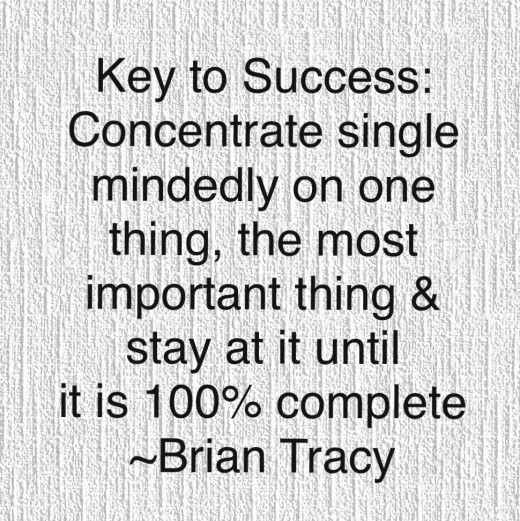
Consistency is the Key to Success
Have you ever started a project and went all out on it for the first week… maybe even two weeks. Then you lost steam and the interest in the project waned. Somehow you dropped the project. You stopped working on it all together. Every now and then you think about it and think to yourself, ”Self? I really need to go back and finish that story.” If you are like me, you say it, but you never touch it again.
This is the dreadful reaction to inconsistency. You can go and dive head first into a story with all intentions of finishing it, but if you don’t have a habit of writing everyday at a certain time, you will most likely fail in finishing the work. This is not the case for everyone, but I think it is the case for 98% of us.
The only real way to avoid this collapse in story telling is to have a specific time everyday to sit down in front of a computer and write. It can be 20 minutes. If you write for 20 minutes you could write an average of 400 words per day. In three months you will have just under 40,000 words written, more if you get carried away some days.
If you can find this 20 minutes to write, preferably the same time everyday, you will be able to write a novel within 6 months. You could half that time if you wrote 20 minutes in the morning and 20 minutes at night. Try it for two weeks. Make it a habit and watch your numbers grow. It will feel good when you consistently print page after page of content.
Keeping a Writing Notebook
I find that most of my ideas come to me at the most inopportune time. I may be driving on the highway at 70 miles per hour or sitting in a movie theater or having dinner with someone. Whatever the case may be, I am never sitting at a computer when I have these flashes of genius. These are the times when a writing notebook comes in handy.
I started this practice when I was in college studying art. I needed a way to keep track of everything while having a place to draw and write. I found a blank sketchbook at my local Borders Bookstore. It contained nearly 200 pages of blank space. I just started writing or drawing. Anything that came to my mind I would write down or illustrate. I filled that one notebook in six months. I bought another one and filled that one in another six. Today there are eight of these sketchbooks full of my wandering thoughts, notes, shopping lists, doodles, prose and poetry that I started and all kind of other crazy things.
The last sketchbook that I found was over 400 pages. This one has lasted more than a year. The binding on it has started to wear out and fall off, but that is what happens when I take it everywhere with me. I keep pictures, birthday and Christmas cards taped on various pages throughout the book. It has become almost a journal of a sort. I just don’t always talk about my life.
Tips on keeping a writing/drawing notebook:
- Write the date on the page when you write on it. You never know when you are going to need to know when you created a certain idea.
- Keep the taping of cards to a minimum. The extra cards will thicken the book, making it burst its binding.
- When people ask to look at it, say no. It contains your private thoughts and ideas. You don’t want everyone looking at them. If you do let people read it from time to time, you won’t be as honest in your writing because you will always be afraid that someone is going to read it.
- Start from page one and fill up page after page as you need it. You will be surprised at how fast those pages fill up.
- I found that keeping a phone list and maybe a calendar in the back of the book very useful.


